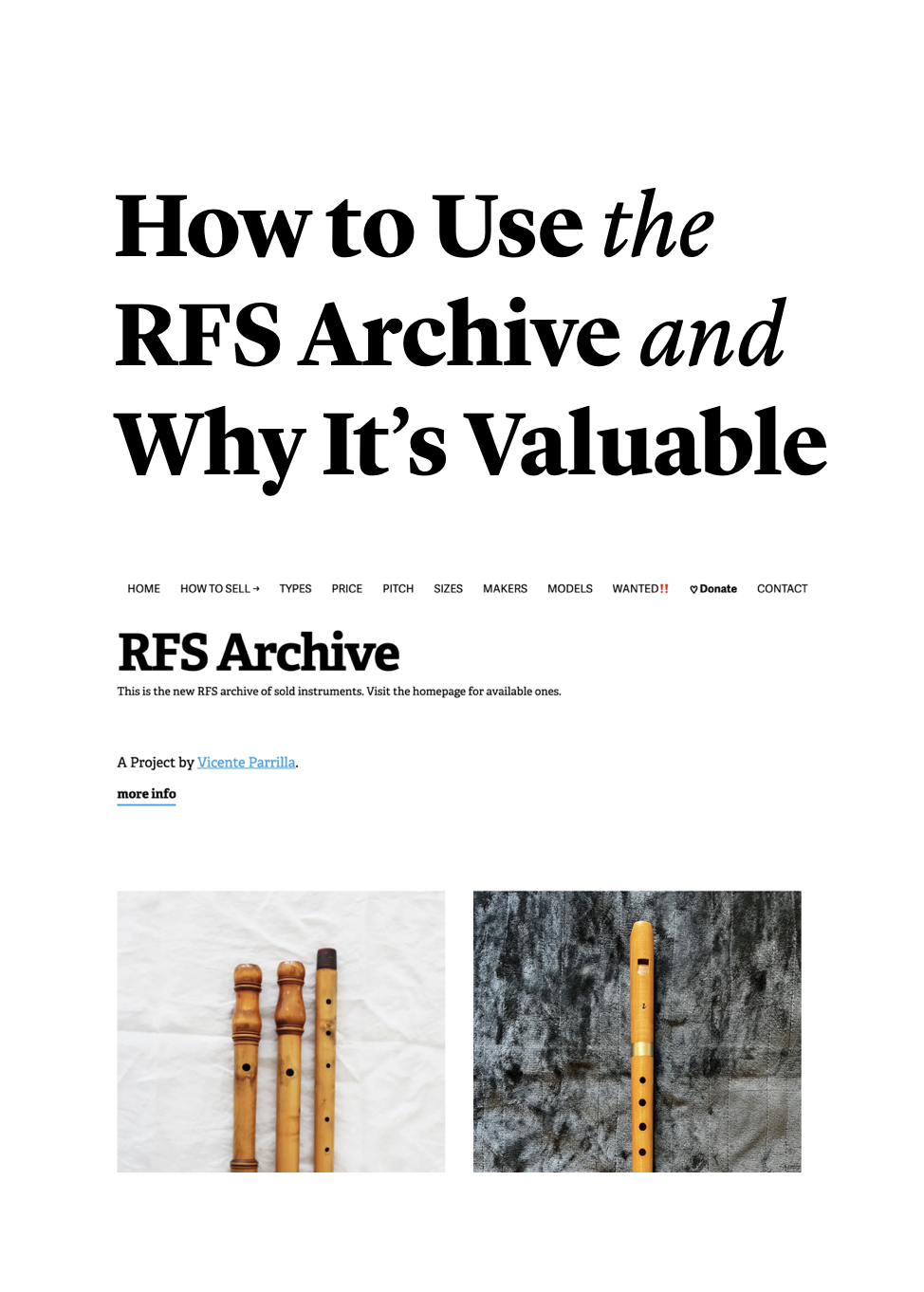In a recent post, I explained how Recorders for Sale (RFS) has grown over the past ten years, accumulating around 700 listings, which made it necessary to restructure the site and separate instruments currently for sale from those already sold. The best solution I found was to create a dedicated website—the RFS Archive—within the main site. While this means significantly more work for me, as I have to manually transfer listings and maintain two sites, I believe it has improved usability. Now, when users search by category, the results show only available instruments—a long-requested feature that is finally in place.
How the RFS Archive Helps Keep Prices Fair
But beyond this, the archive itself is a valuable resource worth consulting. Perhaps its most important role is in helping prevent price speculation. As you may know, RFS listings are priced by the instrument owners, with no intermediaries—meaning I take no commission. If I did, prices would inevitably rise, as we see happening elsewhere these days. So far, so good.
The downside is that others are increasingly stepping into this gap. Since RFS is open to all, some resellers, consignment shops, and dealers have started purchasing instruments listed at reasonable prices, only to resell them at significantly higher rates—sometimes double or more than what they originally sold for on RFS. For now, I won’t mention any names or share links, but I will highlight specific cases, starting with this instrument, originally sold on RFS, then bought by a reseller and relisted on their website for more than twice the original RFS price.
Why RFS Matters
Of course, these are legitimate businesses, and there are many different business models. That’s why I’m not sure to what extent RFS can or should try to prevent this practice, but I would like to minimise its role in enabling it, even indirectly. My main goal with this post is to encourage visitors to check the RFS Archive before buying a pre-owned recorder from other online shops or resellers. If an instrument was recently sold here, make sure it’s not now being resold at an excessive markup.
More broadly, I hope this example highlights the value of a non-profit initiative like RFS, how it differs from for-profit businesses, and why it’s worth preserving. If you’d like to support RFS and help secure its future, consider becoming a supporter.
—VP.
